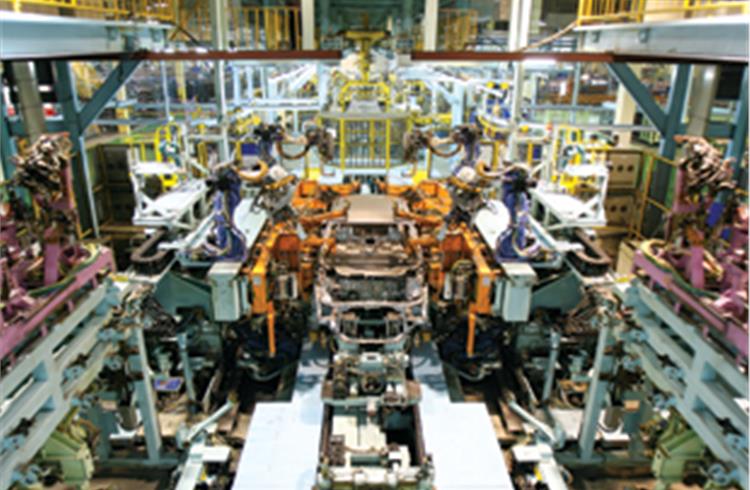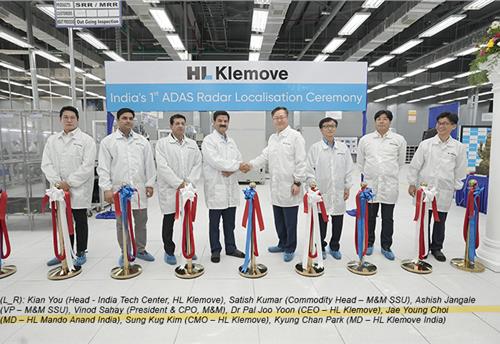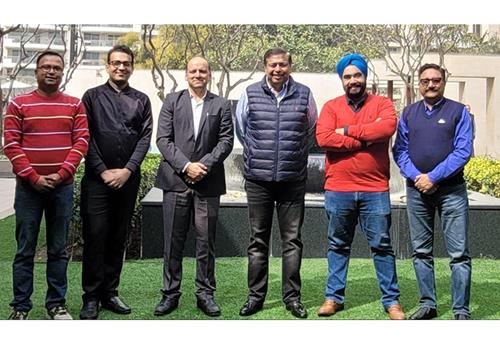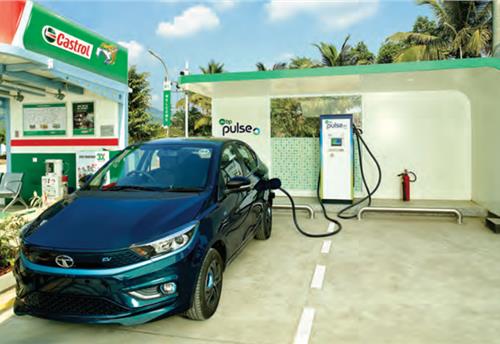Honda doubles plant capacity
Honda SIEL Cars India has increased manufacturing capacity at its Greater Noida plant to 100,000 units per annum to meet growing demand.
With this, the Japanese carmaker has invested a total of Rs 1,620 crore at the Greater Noida manufacturing facility since its establishment in 1997. According to the company, this expansion was necessitated by the growing demand for its passenger car models, particularly the City ZX. During the last year, Honda said it was unable to meet all the demand for its models due to capacity constraints at its plant.
The expanded facility was inaugurated on February 25 by T Oyama, president and CEO, Asian Honda Motors Co, in the presence of senior company officials, stakeholders and partners. The enhancement of this manufacturing facility also includes expansion of the covered area in the plant, from 107,000 to 131,794 square metres.
The Greater Noida plant has a total land area of over 600,000 square metres (150 acres) and currently produces the City, Civic and Accord models, with an indigenisation level of 80 percent, 75 percent and 34 percent respectively. Currently the company brings in 60 percent of its imported components from Thailand, which gives it duty benefits thanks to the Indo-Thailand Free Trade Agreement.
Other countries that supply Honda in India are Indonesia (for automatic transmissions), Philippines (for manual transmissions) and Malaysia (for bumpers). The remaining 10 to 15 percent of imported components come in from Japan. Most of the import content relates to the powertrain, namely engine and transmission, which Honda has been unable to localise as yet due to quality and technology issues with local suppliers.
The company plans to begin production of the New Accord from this plant soon and is also offering a new 2-litre version of its CR-V as a fully-built import from Japan. Several advanced manufacturing techniques and robots have been incorporated in the plant to enhance the quality and accuracy of operations. For example, the weld shop now has 27 new robots and the new paint shop has 12 robots to apply the finishing top-coat to the vehicles. This is expected to speed up the manufacturing process and increase efficiency on the line. In order to make the assembly process more worker-friendly, Honda has also redesigned the layout of the assembly line and other work areas to make them more ergonomic. To strengthen safety on the shopfloor, sophisticated sensors have been installed which are activated in case of a breach of safety anywhere in the plant.
Green movement
Keeping with the green theme of most carmakers today, Honda has also made sure the Greater Noida facility is in line with its latest global plants, with emphasis on environment protection and safety. This facility will promote greenery through plantations and have better water recycling and waste management, allowing sustainable development of the environment.
To promote this image and also highlight its technological prowess, Honda plans to launch the Civic Hybrid in the Indian market within the next few months and is expecting to sell about 300 to 500 units of this model in the next fiscal.
According to M Takedagawa, president and CEO, HSCI, “as we expand our presence in India, we are conscious of our commitment to the environment. Apart from setting up the mandatory infrastructure for water recycling and waste management, we have also set ourselves very stiff CO2 emission and waste reduction targets for our plant. Innovative use of solar power and recycled water will ensure conservation of scarce natural resources such as water and power”.
Elaborating on future plans, he added: “Having completed the capacity expansion to 100,000 units annually, we are also gearing up to start operations of our second plant in Rajasthan by 2009, which will have a capacity of 60,000 units per annum.” This new plant is being set up with an initial investment of Rs 1,000 crore that would be increased to Rs 3,000 crore over time as additional facilities like powertrain manufacturing are added.
By 2010, Honda expects to have a combined production capacity of 240,000 units per annum at its two plants at Greater Noida and Rajasthan. Admitting that its costs would come down with all this new capacity coming on stream, Takedagawa said that the big investments in these plants would also see a spike in depreciation costs that could somewhat offset these benefits.
In his view, the real benefits would start to roll in only after a period of two to three years. He was also not too concerned with rising steel prices, saying that process improvements would allow Honda to recover these increases. Talking about the company’s future small car, which will be made at the upcoming Rajasthan plant, he said that there is no plan to fit a small diesel engine into the car. However, having a hybrid system as an option is a possibility. Nevertheless, manufacturing this hybrid system in India would prove a challenge as Honda has never made a hybrid car outside Japan as yet. Takedagawa also confirmed that the carmaker had recently begun working on a new small car for India, which would also be supplied to other global markets that have similar requirements of low price and high fuel efficiency.
Honda has ruled out the possibility of a three-shift operation at Greater Noida since that would mean continuous operations, leaving no time for maintenance activities. The company is optimistic about market prospects during fiscal 2008-09, expecting the overall Indian passenger car market to grow by 16 percent.
As for its own sales, it has set a target of 90,000 units for the year, an increase of 35 percent from last year’s sales of 68,000 units. Inspite of the r
RELATED ARTICLES
Branded content: HL Klemove inaugurates first Local ADAS Radar Manufacturing Unit in India, marks a significant achievement in “Make in India” initiative
The inauguration ceremony was held in the presence of Vinod Sahay, President and CPO of Mahindra & Mahindra Ltd. and Dr....
BluWheelz to 'Green Up' logistics sector
With their EVs-as-a-service solution, the startup is playing it smart with costs and looking to electrify the entire seg...
BRANDED CONTENT: Spearheading the EV revolution in India
Jio-bp is a joint venture between Reliance Industries and BP PLC where both entities have married international expertis...





 By Autocar Pro News Desk
By Autocar Pro News Desk
 18 Mar 2008
18 Mar 2008
 7592 Views
7592 Views









